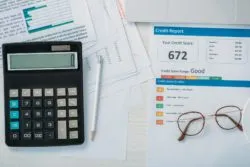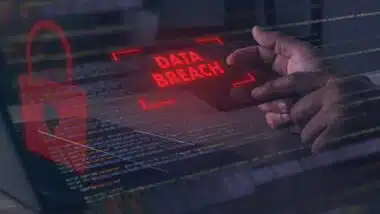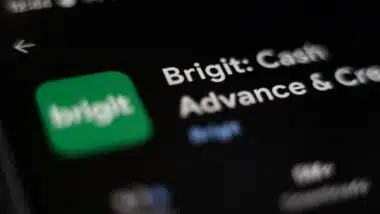 Not everyone is in the habit of consistently checking their credit score, and to some extent, that makes sense—for many, credit scores are so abstract and intangible that they may put them out of their minds altogether. However, there are real, concrete risks to your credit score. There are regular security breaches that put countless consumers’ personal data at risk of financial loss, identity theft, and more.
Not everyone is in the habit of consistently checking their credit score, and to some extent, that makes sense—for many, credit scores are so abstract and intangible that they may put them out of their minds altogether. However, there are real, concrete risks to your credit score. There are regular security breaches that put countless consumers’ personal data at risk of financial loss, identity theft, and more.
With this knowledge, it’s logical to take the right steps to protect your personal data, which includes remembering to regularly check your credit report for errors.
How do I Check My Credit Score?
Under federal law, consumers can get a free report from three major credit bureaus at least once annually. A once-a-year credit report check is a good first step.
If you want to maximize these resources, you can request a credit check from each of these major credit bureaus every four months.
But you don’t actually have to wait for one of these credit bureaus in order to check your credit report for errors. There are a number of free credit monitoring sites available that will allow you to check your score and your report.
What Does a Credit Report Include?
Credit reports include a slew of important information, including:
- Birthdate
- Social Security number
- Address
- Previous addresses
- Phone numbers
- Credit accounts
- Payment history
- Record of who has accessed your credit information
In some cases, credit reports can also include repossessions, collections, foreclosures, and bankruptcy filings.
Why Should I Check My Credit Report Often?
Experts indicate that it is a good idea to check your credit report for errors as regularly as possible, and more than once a year can be especially useful.
“Your credit report has information about your finances and your bill-paying history, so it’s important to make sure it’s accurate,” said Charles Harwood, Acting Director of the FTC’s Bureau of Consumer Protection.
Seeing errors in your credit report may indicate that you have been a victim of identity theft. Responding to identity theft as quickly as possible is essential for minimizing the damage it can cause.
Not all errors in a credit report indicate identity theft. In some cases, your information may be outdated, or a payment you made on time may be listed as late. Either of these things can result in your credit score taking a hit. Fortunately, fixing an error in your credit report can help improve your score, according to CNBC.
According to a study from the Federal Trade Commission (FTC), one in four consumers identified errors in their credit reports that might affect their credit scores. Four out of five consumers who filed credit report disputes had their credit reports modified to some extent as a result.
If you check your credit report for errors and discover incorrect information, the agency may be in violation of the Fair Credit Reporting Act (FCRA), and liable. If you find this to be the case, you may be able to join this credit report error class action lawsuit investigation.
Join a Free Credit Report Errors Lawsuit Investigation
If you have errors on your credit report, you may qualify to participate in a credit report lawsuit investigation.
This article is not legal advice. It is presented
for informational purposes only.
ATTORNEY ADVERTISING
Top Class Actions is a Proud Member of the American Bar Association
LEGAL INFORMATION IS NOT LEGAL ADVICE
Top Class Actions Legal Statement
©2008 – 2026 Top Class Actions® LLC
Various Trademarks held by their respective owners
This website is not intended for viewing or usage by European Union citizens.














